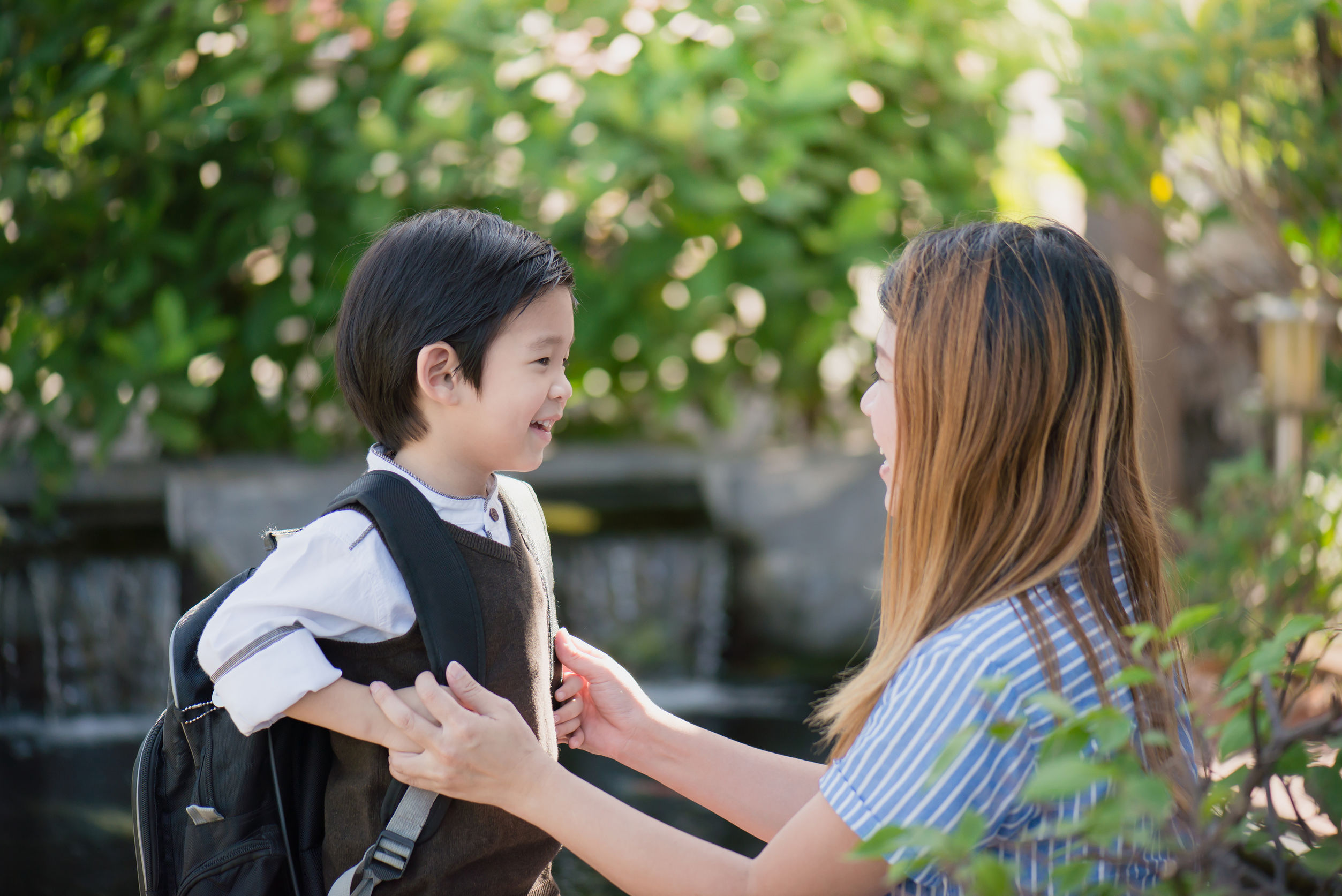
Ready for school, ready for life
Children are born ready to learn, so as parents/carers you are preparing your child to be ready for school from birth. By encouraging your child to be an independent and curious learner, through talking, play and exploring their environment in a safe and secure environment, you are ensuring your child not only has the skills they need to be ready for school, but also for life.
Transition from nursery to school
Transition into school can be a worrying and stressful time for children and parents/carers. A smooth transition is essential to support the emotional health and wellbeing of your child. Children who are well supported learn positive ways of coping with change. Try not to let your child see that you are anxious. Remember, you are your child’s greatest teacher and role model.
Nursery and school will work with you and your child to ensure that your child’s transition into school is seamless. It is a joint effort between you. You may feel conflicting emotions: proud that your child is growing up, and at the same time sad that they’re not babies anymore. This is perfectly normal.
What skills should my child have before starting school?
Children start school with a wide range of skills and abilities. All children are unique and will progress and develop at their own speed.
Children that are ready for school:
- have good social skills
- are confident to communicate their own needs
- are able to regulate their emotions
- are independent in their personal care
- are curious about the world around them
- are able to cope emotionally with being separated from their parents/carers.
Remember, your child doesn’t need to be able to read, write or do sums before they start school.
How to get your child ready for school: top tips
- Encourage your child to explore new environments, activities and interact with new people.
- Reassure your child that it’s OK to make mistakes, and encourage them to stay interested in practical activities to develop their concentration skills.
- Help develop your child’s communication skills by playing, talking, singing and reading regularly with them.
- By the time your child starts school, they should be nappy-free during
the day. Encourage your child to be as independent as possible with toileting: wiping themselves, flushing the toilet and washing their hands with adult supervision. - Provide opportunities for your child to play with other children to support their emotional development.
- Ensure that your child has a good routine when it comes to bedtime. A good night’s sleep will help your child cope with the demands of the school day.
- Encourage your child to be as independent as possible by practising dressing and undressing themselves. Elastic waistbands and Velcro shoes can help build your child’s confidence with these tasks. At school, your child will need to be able to dress and undress for PE.
- Support your child to try new foods, eat at the table using a knife fork and spoon, and use an open cup to drink from.
- Encourage your child to tidy and look after their belongings at home. Your child will be expected to hang their coat on their peg and tidy the activities away that they have been playing with in the classroom.
- Children need praise and encouragement with general day-to-day tasks, especially when they have achieved new goals such as eating their vegetables or putting their toys away. Praise encourages positive self-esteem and self-worth.
The more your child practices these skills, the more
their confidence will grow.
School Readiness Parent/Carer Workshop from Connect for Health
This short video provides further guidance on preparing your child to start school.

